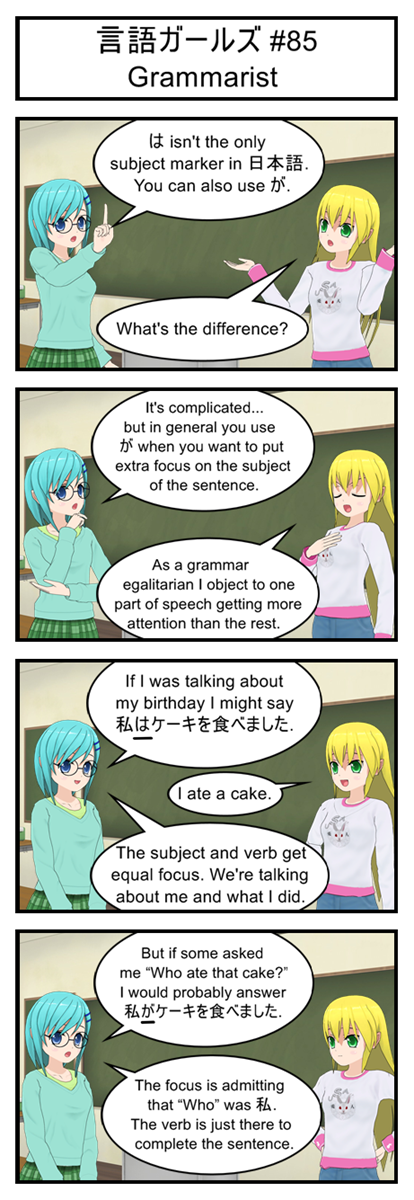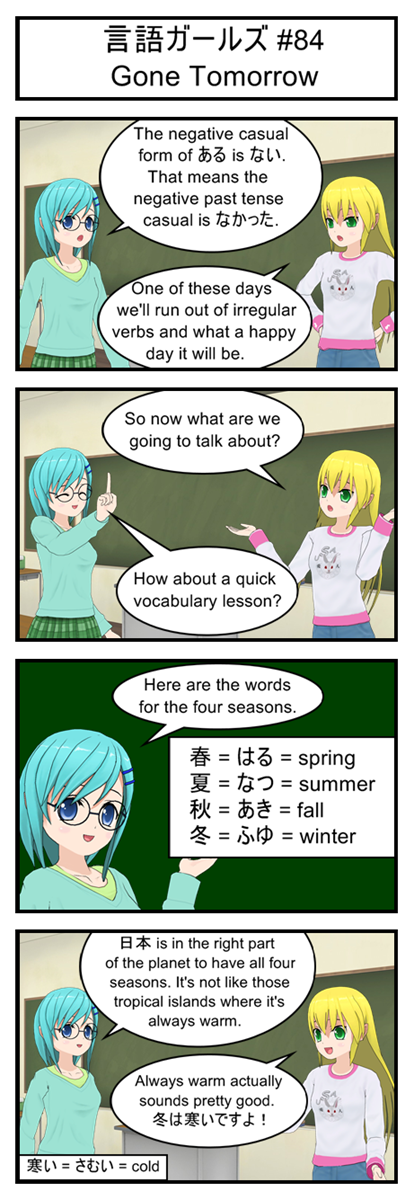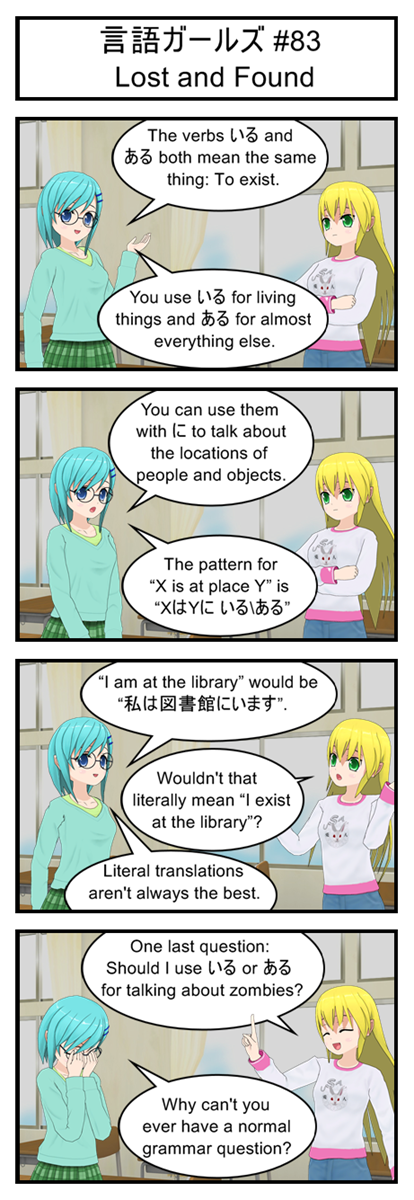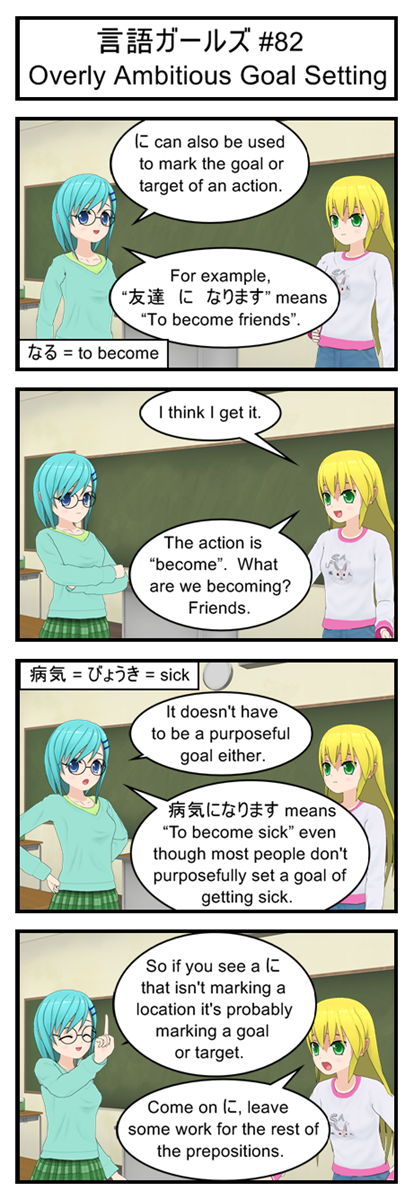
With a little research you can find tons of articles on all the differences between は and が, but as a beginner you really just need to know that they do almost the same thing but that は is slightly more common. That’s enough to let you get by until you have the time and experience to really look into the details. No need to overwhelm yourself all at once.
Transcript
言語ガールズ #85
Grammarist
Blue: は isn’t the only subject marker in 日本語. You can also use が.
Yellow: What’s the difference?
Blue: It’s complicated… but in general you use が when you want to put extra focus on the subject of the sentence.
Yellow: As a grammar egalitarian I object to one part of speech getting more attention than the rest.
Blue: If I was talking about my birthday I might say 私はケーキを食べました.
Yellow: I ate a cake.
Blue: The subject and verb get equal focus. We’re talking about me and what I did.
Blue: But if some asked me “Who ate that cake?” I would answer 私がケーキを食べました.
Blue: The focus is admitting that “Who” was 私. The verb is almost just a background detail.


